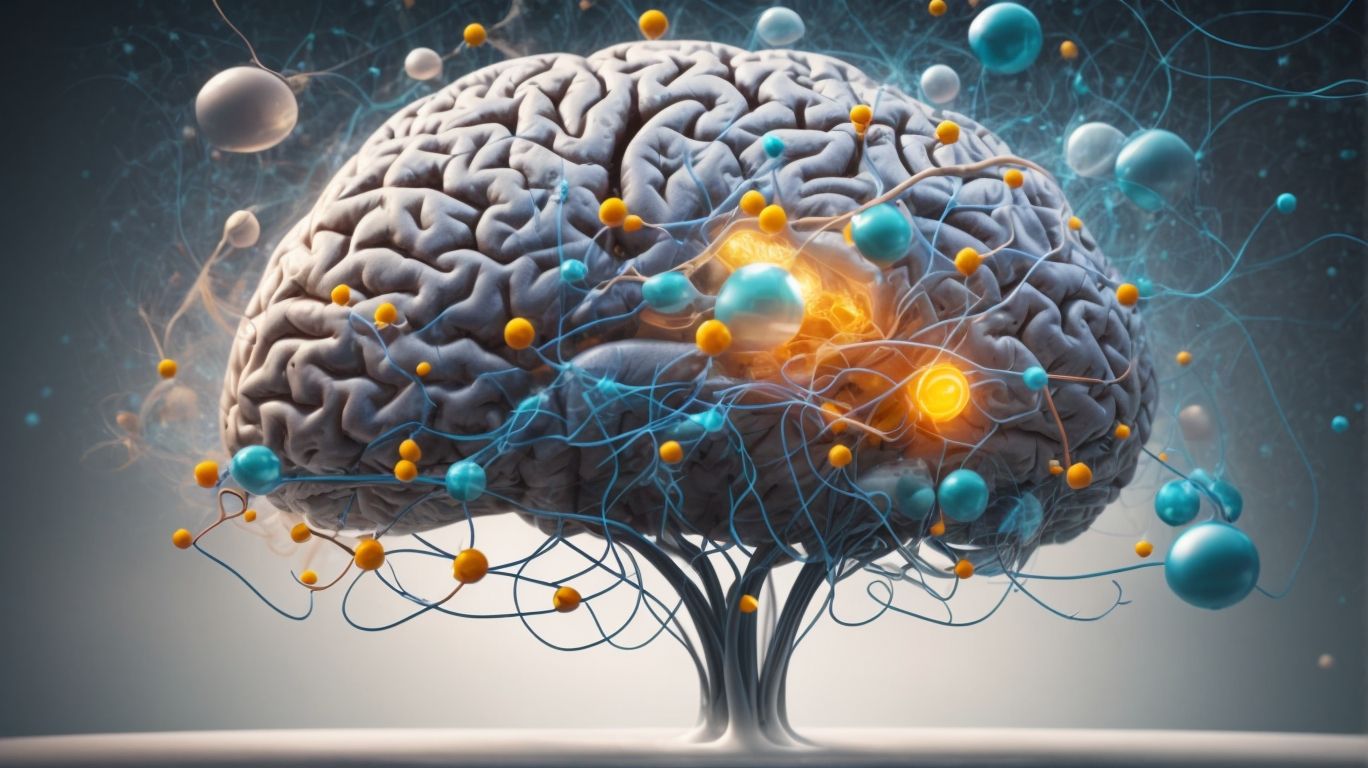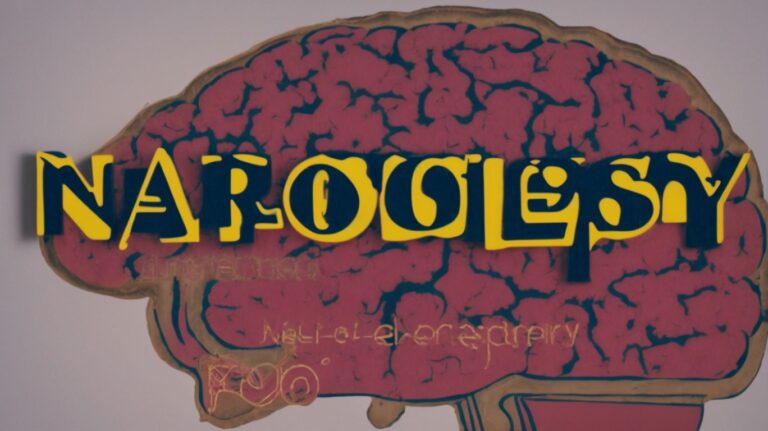Depression is a complex and often misunderstood mental health issue that affects millions of people worldwide. In this article, we will explore the concept of depression from the perspective of cognitive psychology.
We will delve into the causes of depression according to cognitive psychology, including negative thoughts and beliefs, cognitive distortions, and learned helplessness. We will examine the symptoms of depression as viewed through the lens of cognitive psychology and explore the various treatment approaches, such as cognitive behavioral therapy and mindfulness-based cognitive therapy.
We will discuss the limitations of cognitive psychology’s perspective on depression. This insightful analysis aims to provide a comprehensive understanding of depression from a cognitive psychology standpoint.
Contents
- 1 Key Takeaways:
- 2 What Is Depression According to Cognitive Psychology?
- 3 How Does Cognitive Psychology Explain the Causes of Depression?
- 4 What Are the Symptoms of Depression According to Cognitive Psychology?
- 5 How Does Cognitive Psychology Approach the Treatment of Depression?
- 6 What Are the Limitations of Cognitive Psychology’s Perspective on Depression?
- 7 Frequently Asked Questions
- 7.1 What is the role of cognitive psychology in understanding depression?
- 7.2 How does cognitive therapy differ from traditional therapy in treating depression?
- 7.3 What are some common cognitive distortions seen in individuals with depression?
- 7.4 Can cognitive psychology techniques be used to prevent depression?
- 7.5 How does cognitive psychology explain the link between rumination and depression?
- 7.6 Can cognitive psychology shed light on the effectiveness of medication for depression?
Key Takeaways:
What Is Depression According to Cognitive Psychology?
Depression, as viewed through the lens of cognitive psychology, involves an intricate interplay between cognitive processes and emotional dysregulation, leading to a pervasive negative impact on an individual’s mood and cognitive functions.
This intricate interplay is central to the cognitive theories of depression, emphasizing the crucial role of cognitive distortions, such as negative interpretations of events, in shaping an individual’s emotional experiences.
According to cognitive psychology, these distorted thought patterns often become automatic, contributing to a self-perpetuating cycle of negative emotions and maladaptive behaviors. The cognitive model also highlights the significance of cognitive biases, where individuals tend to selectively attend to, and remember, negative information while disregarding positive stimuli, further perpetuating the cycle of negative mood and emotions.
How Does Cognitive Psychology Explain the Causes of Depression?
Cognitive psychology provides insights into the causes of depression by elucidating how cognitive biases, automatic information processing, and maladaptive cognitive-behavioral patterns contribute to the onset and perpetuation of depressive episodes.
Cognitive biases, such as negative interpretation of situations and selective attention to negative stimuli, can lead individuals to perceive the world in a distorted manner, reinforcing feelings of hopelessness and worthlessness.
Automatic information processing, where negative information is readily attended to and processed, further amplifies the negative cognitive biases. This constant reinforcement of negative thoughts and interpretation of events contributes to the development and maintenance of depression.
Negative Thoughts and Beliefs
Negative thoughts and beliefs play a pivotal role in the cognitive psychology explanation of depression, as they fuel cognitive biases and distort perception, contributing to sustained negative emotion and mood dysregulation.
This can manifest in various cognitive distortions such as black-and-white thinking and catastrophizing, where individuals view situations in extremes and magnify the potential negative outcomes.
These biases can perpetuate a cycle of negative thoughts and reinforce the belief of unworthiness or hopelessness. These negative thoughts can impact emotional regulation, leading to heightened sensitivity to negative stimuli and decreased responsiveness to positive experiences. This emotional dysregulation intensifies the depressive symptoms and perpetuates the cycle of negative thinking.
Cognitive Distortions
Cognitive distortions, such as overgeneralization and selective abstraction, are central to the cognitive psychology perspective on depression, influencing the individual’s cognition and response patterns, often addressed in cognitive-behavioral therapy interventions.
Overgeneralization involves making broad conclusions based on single incidents, leading to a skewed perception of reality. This distortion can exacerbate feelings of hopelessness and helplessness.
On the other hand, selective abstraction involves focusing solely on negative aspects, disregarding positive experiences or evidence to the contrary, further reinforcing pessimism. These distortions significantly impact how an individual processes information, fostering a cycle of negative thoughts and emotions.
Learned Helplessness
Learned helplessness, a concept within cognitive psychology, is linked to depression through its influence on the interpretation of events, diminishing resilience and adaptive coping mechanisms in the face of challenges and stressors.
When individuals experience a sense of learned helplessness, they often develop a pessimistic view of their ability to control their circumstances, leading to a lack of motivation to change their situation.
This cognitive shift can significantly impact their interpretation of challenges, causing them to perceive obstacles as insurmountable. Consequently, this distorted perception can exacerbate the symptoms of depression and impede efforts to seek out solutions or alternative coping strategies.
What Are the Symptoms of Depression According to Cognitive Psychology?
The symptoms of depression, as delineated by cognitive psychology, encompass persistent sadness, loss of interest, changes in appetite and sleep patterns, and difficulties in attention and decision-making, reflecting the interplay between cognitive and emotional dysregulation.
In cognitive-behavioral therapy, these symptoms are often associated with negative thought patterns, such as pessimism, low self-esteem, and feelings of worthlessness. Individuals may also experience cognitive distortions, including black-and-white thinking, catastrophizing, and overgeneralization.
Emotional manifestations may include heightened anxiety, irritability, and reduced emotional expression. The inability to derive pleasure from previously enjoyable activities, known as anhedonia, is another significant indicator. Such cognitive and emotional disturbances contribute to a pervasive sense of hopelessness and helplessness, reinforcing the vicious cycle of depression.
Persistent Sadness and Hopelessness
Persistent sadness and overwhelming feelings of hopelessness are hallmark symptoms of depression according to cognitive psychology, reflecting the intricate interplay between emotional and cognitive dysregulation.
Individuals experiencing persistent sadness may exhibit a pervasive sense of emptiness and loss of interest in previously enjoyable activities.
Concurrently, they may struggle with negative cognitive biases, such as distorted thinking patterns and impaired decision-making abilities. These emotional-cognitive challenges can further fuel a cycle of despair, reinforcing the feelings of hopelessness and contributing to a pervasive sense of despair and disconnection from the world.
Loss of Interest or Pleasure in Activities
The cognitive perspective on depression highlights the symptom of pervasive loss of interest and pleasure in previously enjoyable activities, often linked to attentional difficulties and addressed in cognitive-behavioral therapy interventions.
This loss of interest, or anhedonia, is a central feature of depression that significantly impacts an individual’s quality of life.
Research has shown that it is connected to deficits in attention, making it difficult for individuals to engage fully in their surroundings.
Cognitive-behavioral therapy interventions often target these attentional deficits by using techniques such as behavioral activation to re-engage individuals in pleasurable activities and cognitive restructuring to address negative thought patterns associated with the loss of interest and pleasure.
Changes in Appetite and Sleep Patterns
Cognitive psychology identifies changes in appetite and sleep patterns as significant symptoms of depression, reflecting the impact of cognitive and emotional dysregulation on physiological and behavioral functions, often addressed in cognitive-behavioral therapy strategies.
These disturbances in appetite and sleep often manifest as either decreased or increased appetite and significant disruptions in sleep patterns such as insomnia or hypersomnia. These symptoms can exacerbate the cognitive and emotional dysregulation experienced by individuals with depression, leading to a vicious cycle of worsening mental and physical well-being.
In cognitive-behavioral therapy, these symptoms are frequently addressed as part of the holistic treatment approach. By targeting dysfunctional thought patterns and maladaptive behaviors related to appetite and sleep, individuals can learn to regulate their cognitive and emotional processes, which in turn can lead to improvements in appetite and sleep patterns as well as overall psychological well-being.
“
Cognitive psychology identifies changes in appetite and sleep patterns as significant symptoms of depression. These changes reflect the impact of cognitive and emotional dysregulation on physiological and behavioral functions, which are often addressed in cognitive-behavioral therapy strategies.
Disturbances in appetite and sleep can manifest as either decreased or increased appetite and significant disruptions in sleep patterns, such as insomnia or hypersomnia. These symptoms can exacerbate the cognitive and emotional dysregulation experienced by individuals with depression, creating a vicious cycle of worsening mental and physical well-being.
In cognitive-behavioral therapy, these symptoms are frequently addressed as part of a holistic treatment approach. By targeting dysfunctional thought patterns and maladaptive behaviors related to appetite and sleep, individuals can learn to regulate their cognitive and emotional processes. This, in turn, can lead to improvements in appetite and sleep patterns, as well as overall psychological well-being.
Difficulty Concentrating and Making Decisions
Cognitive psychology emphasizes the pervasive difficulty in concentration and decision-making as key symptoms of depression, reflecting the impact of cognitive dysregulation on cognitive functions frequently targeted in cognitive-behavioral therapy interventions.
Individuals experiencing difficulties in concentration may find it challenging to stay focused on tasks or conversations, leading to decreased productivity and increased frustration.
The struggle in decision-making can manifest as indecisiveness, second-guessing, or avoidance of making choices. These symptoms are often rooted in cognitive dysregulation, which disrupts their ability to process information and make accurate judgments, influencing their overall cognitive functioning.
How Does Cognitive Psychology Approach the Treatment of Depression?
Cognitive psychology adopts diverse approaches for the treatment of depression, including cognitive-behavioral therapy, mindfulness-based cognitive therapy, interpersonal therapy, and pharmaceutical interventions, aiming to address cognitive biases and emotional dysregulation.
Cognitive-behavioral therapy (CBT) focuses on identifying and modifying negative thought patterns and behaviors, helping individuals develop healthier, more adaptive ways of thinking and coping. This approach aims to challenge distorted thinking, explore underlying beliefs, and encourage behavioral activation to mitigate depression symptoms.
Mindfulness-based cognitive therapy (MBCT) integrates cognitive therapy techniques with mindfulness practices, emphasizing present-moment awareness and acceptance of thoughts and feelings. By cultivating mindfulness, individuals learn to relate to their thoughts differently, reducing rumination and preventing relapse.
Pharmaceutical interventions, such as selective serotonin reuptake inhibitors (SSRIs), target neurotransmitter imbalances implicated in depression. These medications help regulate mood and alleviate symptoms, often used in conjunction with psychotherapy to optimize treatment outcomes.
Cognitive Behavioral Therapy (CBT)
Cognitive behavioral therapy, a cornerstone of cognitive psychology’s treatment approach for depression, focuses on identifying and restructuring maladaptive cognitive patterns and emotional regulation strategies to alleviate depressive symptoms and cognitive distortions.
This therapeutic modality operates on the premise that how individuals think influences how they feel and behave.
By utilizing cognitive restructuring, individuals are guided to challenge and modify negative thought patterns, replacing them with more adaptive and constructive beliefs. Emotion regulation techniques are also integrated, helping withdividuals in managing distressing emotions through mindfulness, relaxation exercises, and interpersonal skills development.
Mindfulness-Based Cognitive Therapy (MBCT)
Mindfulness-based cognitive therapy, a prominent intervention in cognitive psychology, integrates mindfulness practices with cognitive restructuring to equip individuals with effective strategies for managing cognitive biases and emotional dysregulation associated with depression.
This therapeutic approach is rooted in the principles of mindfulness, emphasizing non-judgmental awareness of present experiences.
By cultivating mindfulness, individuals develop the capacity to observe their thoughts and feelings without becoming overwhelmed by them. This heightened awareness allows for the identification of maladaptive thought patterns and facilitates the implementation of cognitive restructuring techniques.
Through the combination of mindfulness practices and cognitive restructuring, a significant reduction in depressive symptoms and a decrease in the risk of relapse have been observed.
Interpersonal Therapy (IPT)
Interpersonal therapy, within cognitive psychology‘s treatment repertoire for depression, focuses on addressing social and environmental factors that contribute to depressive episodes, aiming to improve interpersonal relationships and resilience in the face of stressors.
The principles and objectives of interpersonal therapy revolve around identifying and addressing dysfunctional patterns in relationships, communication, and coping strategies to alleviate depressive symptoms.
By fostering a supportive and understanding environment, this therapeutic modality aims to enhance self-esteem and self-efficacy, ultimately leading to improved emotional well-being. It places emphasis on the exploration of life events and their impact on mental health, seeking to facilitate adaptive responses to triggers and stressors.
Medications
Pharmaceutical interventions, often complementing cognitive psychology’s therapeutic approaches, encompass a range of medications targeting depressive symptoms and their underlying cognitive and emotional manifestations to alleviate the burden of depression.
These medications can be classified into different categories, including SSRIs (Selective Serotonin Reuptake Inhibitors), SNRIs (Serotonin and Norepinephrine Reuptake Inhibitors), tricyclic antidepressants, and atypical antidepressants, each acting on specific neurotransmitters in the brain to modulate mood and cognitive function.
SSRIs, for example, work by increasing the levels of serotonin, a neurotransmitter associated with mood regulation, while SNRIs act on both serotonin and norepinephrine, impacting emotional processing and cognitive performance.
These medications not only alleviate depressive symptoms but also target associated cognitive impairments, such as difficulties in concentration, memory, and decision-making, ultimately aiding in the restoration of cognitive abilities and enhancing overall well-being.
What Are the Limitations of Cognitive Psychology’s Perspective on Depression?
While cognitive psychology offers valuable insights into depression, it faces limitations due to its overemphasis on internal cognitive factors, limited attention to social and environmental influences, and the individualized nature of its therapeutic approach, which may not suit all cases.
Although cognitive psychology has made significant strides in understanding the cognitive processes related to depression, its limitations become evident in its narrow focus.
By predominantly concentrating on internal cognitive factors such as distorted thinking patterns and cognitive biases, cognitive psychology tends to overlook the significant impact of social and environmental influences on depression. These factors, including social support, upbringing, traumatic experiences, and socio-economic disparities, play crucial roles in the onset and maintenance of depressive disorders.
The individualized nature of cognitive-based therapies may not adequately address the broader systemic issues that contribute to depression in society.
Overemphasis on Internal Factors
Cognitive psychology’s overemphasis on internal cognitive factors presents a limitation, as it may overshadow the role of external influences and systemic factors in contributing to depression, warranting a more comprehensive perspective on the disorder.
While the dominant focus of cognitive psychology on individual’s thoughts, emotions, and behaviors provides valuable insights into the mechanisms of depression, it tends to neglect the impact of environmental stressors, social relationships, and cultural influences.
The interconnected nature of these external factors and their interplay with individual cognition and behavior necessitate a holistic understanding. Systemic issues such as societal pressures, economic disparities, and healthcare accessibility can perpetuate or alleviate depressive symptoms, underscoring the importance of examining broader contextual dimensions in addressing depression.
Lack of Attention to Social and Environmental Factors
The limited attention to social and environmental factors within the cognitive psychology approach to depression may hinder a comprehensive understanding of the disorder, overlooking the impact of broader contextual influences on mental health and well-being.
Cognitive psychology’s traditional focus on internal processes, such as thoughts and emotions, has been instrumental in understanding depression. However, this emphasis often overlooks the crucial role of social and environmental factors.
Factors such as family dynamics, financial stress, and social support systems play significant roles in the development and maintenance of depression. Therefore, it is essential to understand how these external influences interact with internal cognitive processes to comprehensively address depression and develop effective interventions.
Individualized Approach May Not Be Effective for All Cases
The individualized nature of cognitive psychology’s therapeutic approach may pose a limitation, as it may not adequately address cases that fall outside the established psychiatric diagnostic criteria or require broader systemic interventions for effective management.
Cognitive psychology’s emphasis on addressing individual cognition and behavior is valuable within specific diagnostic parameters, yet it may overlook the impact of larger sociocultural and environmental factors in some cases.
For instance, severe trauma or societal inequality can significantly influence an individual’s mental health, necessitating a more comprehensive treatment approach beyond traditional cognitive therapy.
The one-size-fits-all approach of cognitive psychology may not cater to the diverse needs of individuals with complex psychiatric conditions that require personalized, multidimensional interventions.
Frequently Asked Questions
What is the role of cognitive psychology in understanding depression?
Cognitive psychology provides valuable insights into how our thoughts and beliefs influence our emotions and behaviors, making it a crucial perspective in understanding depression.
How does cognitive therapy differ from traditional therapy in treating depression?
Cognitive therapy focuses on identifying and changing negative thought patterns that contribute to depression, while traditional therapy may focus more on exploring past experiences and emotions.
What are some common cognitive distortions seen in individuals with depression?
Some common cognitive distortions include black-and-white thinking, overgeneralization, and self-blame, which can exacerbate depressive symptoms.
Can cognitive psychology techniques be used to prevent depression?
Yes, cognitive techniques such as cognitive restructuring and mindfulness can help individuals develop more adaptive thought patterns and coping strategies, potentially preventing or reducing the risk of depression.
How does cognitive psychology explain the link between rumination and depression?
Cognitive psychology suggests that excessive rumination, or dwelling on negative thoughts and experiences, can lead to a negative feedback loop, reinforcing and exacerbating depressive symptoms.
Can cognitive psychology shed light on the effectiveness of medication for depression?
While medication can be helpful in treating depression, cognitive psychology emphasizes the importance of addressing underlying thought patterns and beliefs in order to achieve long-term improvements in mood and functioning.



